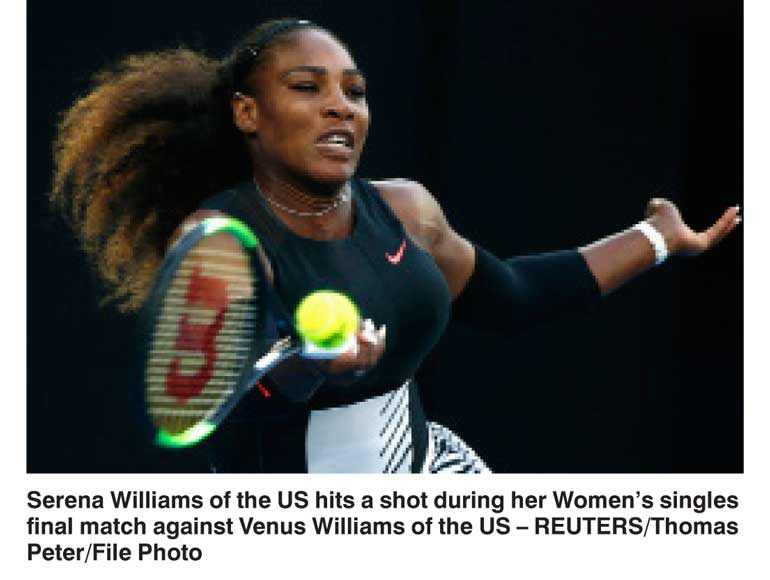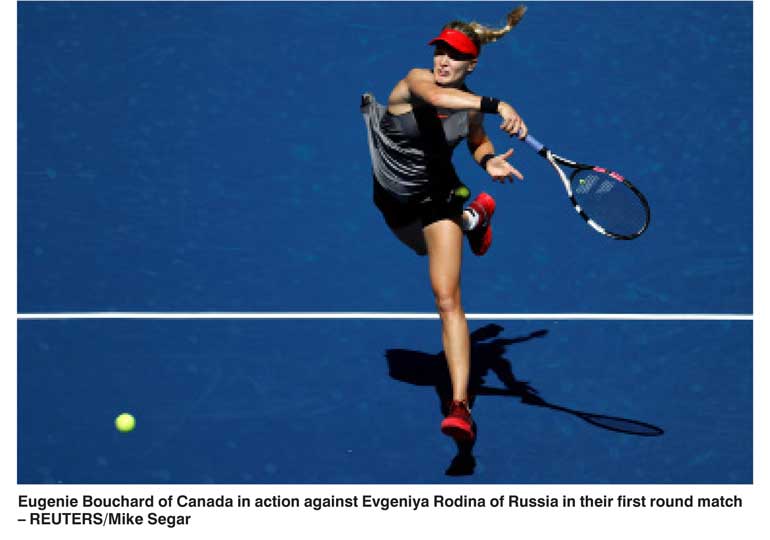Sunday Feb 22, 2026
Sunday Feb 22, 2026
Saturday, 30 September 2017 00:04 - - {{hitsCtrl.values.hits}}

 WUHAN, China (Reuters): Female tennis players still do not receive the credit they deserve for putting on top-quality matches, according to British number one Johanna Konta.
WUHAN, China (Reuters): Female tennis players still do not receive the credit they deserve for putting on top-quality matches, according to British number one Johanna Konta.
A lot of women’s matches this season “really kicked arse, they were outstanding”, Wimbledon semi-finalist Konta told Reuters at the Wuhan Open in central China this week.
“More credit needs to be given. There is so much talk that the women’s draw is so open. But it’s open in the sense of there are so many amazing players. We have the depth.”
Although women have been paid equal prize money at all four grand slams since 2007, they still lag behind the men on their own year-round tennis circuit.
In 2017, the men’s ATP World Tour had a total prize money pot of $197.7 million, compared with $139 million for the women’s WTA Tour.
While Novak Djokovic trails 23-times grand slam singles winner Serena Williams by 11 slam titles, the Serb is the sport’s all-time prize money leader with $109.8 million in earnings. Williams has amassed $84.5 million in her long career.
Although tennis is one of the few professional sports where female athletes can earn a good living, women’s sports generate a minuscule 0.4 percent of all sports sponsorship and just 7 percent of all sports media coverage, according to London-based charity Women in Sport.
Konta, the world number seven, was involved in one of the best matches of the year at Wimbledon, fighting back from a set down to beat the second-seeded Simona Halep of Romania to become the first British woman to reach the last four at the All England Club in 39 years.
Memorable matches
There have been many other notable clashes this season.
Eugenie Bouchard beat Maria Sharapova in Madrid in a highly-anticipated grudge match, eventual champion Garbine Muguruza overcame former top-ranked Angelique Kerber at Wimbledon and unseeded Latvian Jelena Ostapenko thumped 54 winners to beat Halep in the French Open final.
“It’s incredible what is happening this year, because it’s very different from the previous year where maybe one or two players are dominating,” newly-crowned world number one Muguruza told reporters in Wuhan.
“We feel like every week there is the best players, that we’re very close, a lot of diversity.”
Konta took part in a panel discussion with the British Consul General to Wuhan, Nick Whittingham, to talk about gender equality and the empowerment of young women in China.
Growing up in Australia and England in what she described as a “female-dominated household”, Konta told the audience she had never really come across sexism until her tennis career took off.
She used an example of gender bias in the way the British viewing figures of her match against Halep at Wimbledon were reported.
Her quarter-final triumph had been watched by as many as 7.4 million television viewers, a record for a Wimbledon women’s match, according to the BBC. The men’s final, between Roger Federer and Marin Cilic, peaked at 6.4 million viewers.
“When people commented on my match being the most-watched match of the Championships, they put it very much in a female context,” Konta said. “I thought ‘well, why does it need to be in a female context? It’s a tennis match. Part of an event’...
“It’s important to acknowledge the great qualities of both men and women in sport and not segregate them, because you will find very similar qualities in Serena Williams and Roger Federer,” Konta added. “I think that’s what makes sport very beautiful: it isn’t gender-biased technically, everyone is out there doing the work and trying to be the best they can be.”